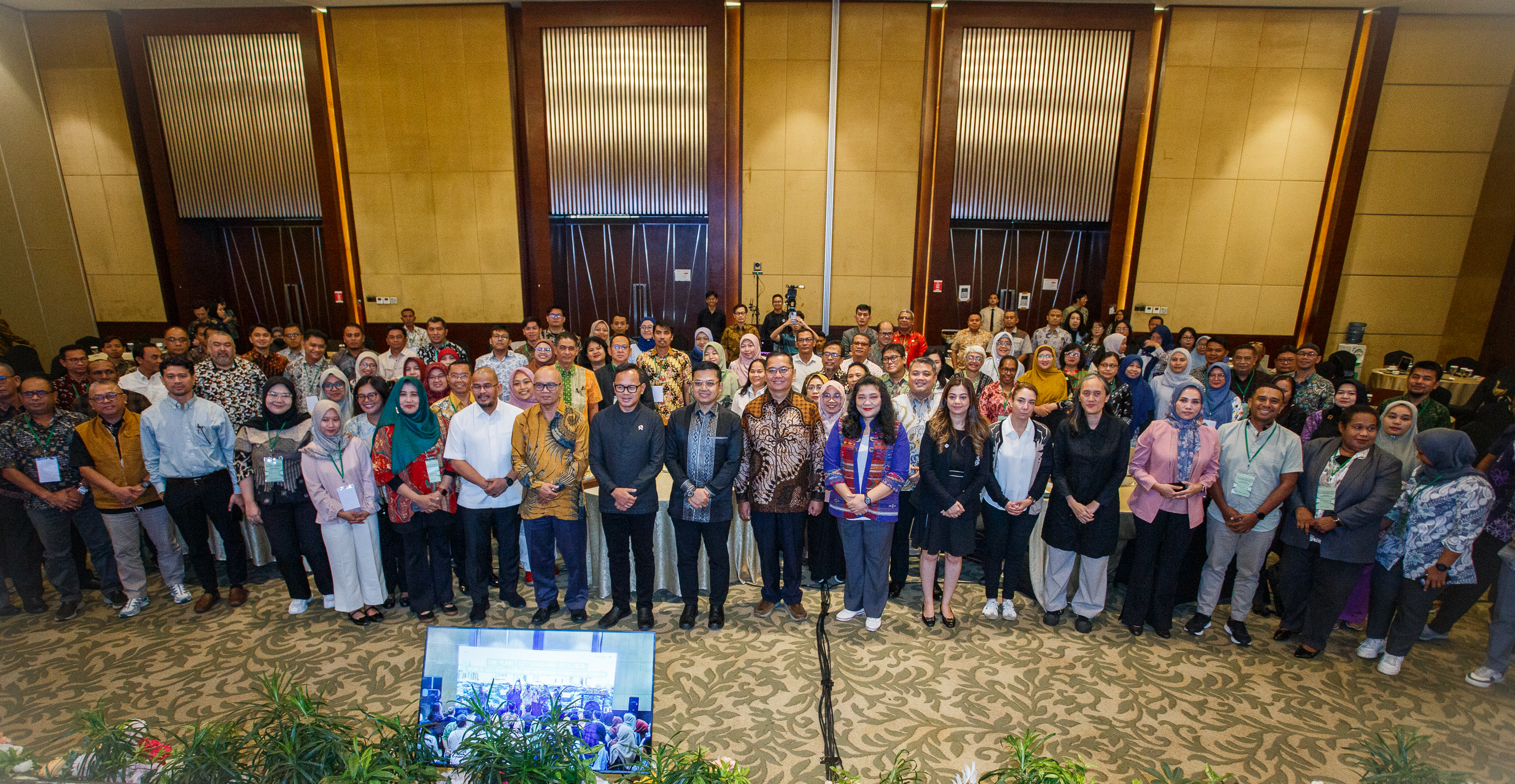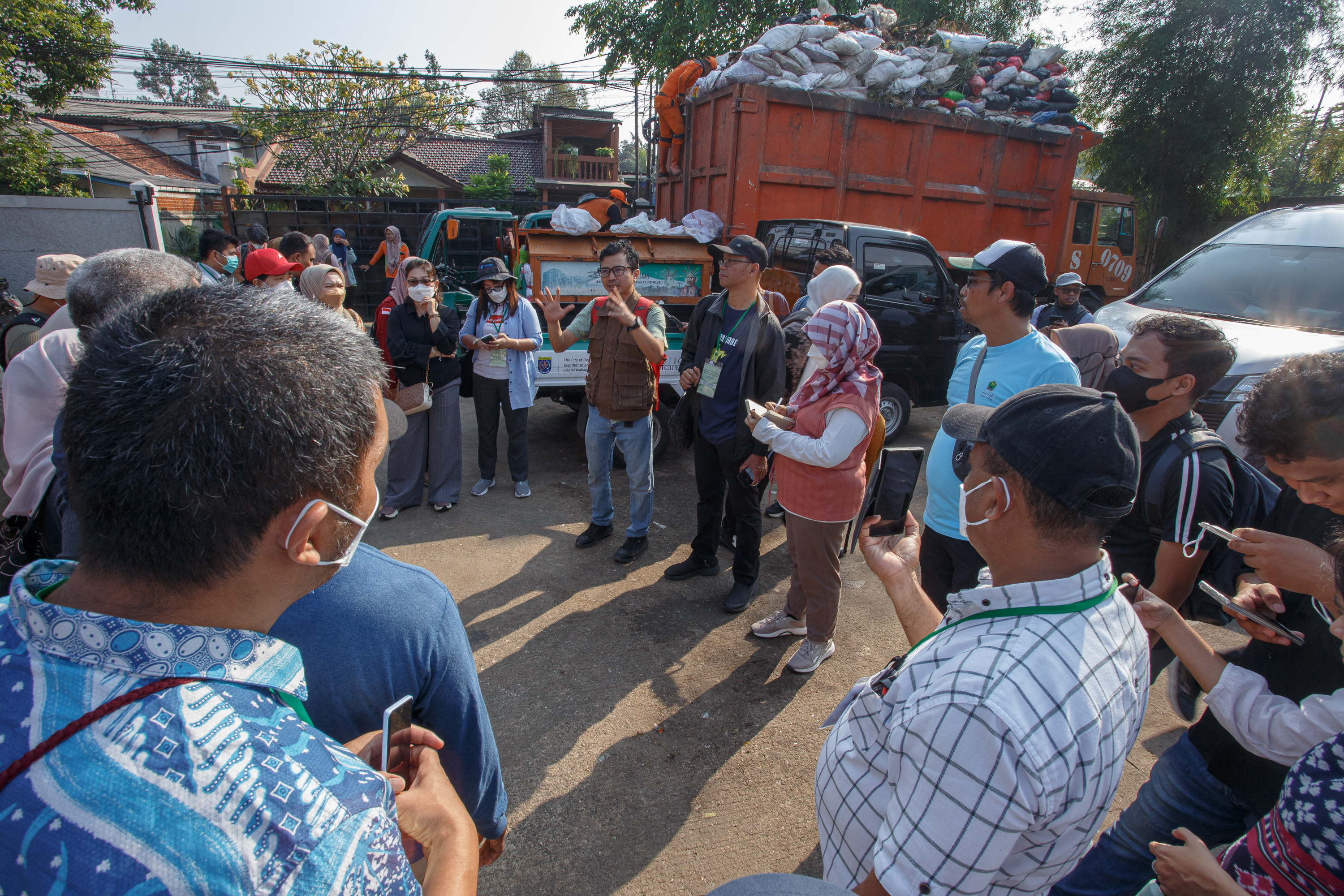OPCC 2025-2026 DRIVES REGIONAL CLIMATE TRANSFORMATION AND ACCESS TO ALTERNATIVE CLIMATE FINANCE
Jakarta, July 29, 2025 - WWF-Indonesia together with ICLEI Indonesia, CDP, the Association of Indonesian City Governments (APEKSI), and the Global Covenant of Mayors for Climate & Energy (GCoM) officially launched the One Planet City Challenge (OPCC) for the 2025-2026 period. The three-day event in Serpong was opened by the Deputy Minister of Home Affairs of the Republic of Indonesia, Bima Arya, and attended by more than 100 participants from 48 cities/districts across Indonesia.
.
This launch is the beginning of a two-year mentoring series that includes capacity building, evaluation process, and awarding the cities/districts with the best climate action plans and implementation.
"While attending the conference in Paris, I saw first-hand how world leaders are aligning their perspectives on climate change issues. The challenge is how to reduce global commitments to national commitments, and then spread them to the regional level. This is not an easy thing because the issues are complex. However, normatively and legally, we already have a sufficient basis-from planning documents to monitoring mechanisms. Now the most important thing is to ensure that the planning documents in the regions, especially the RPJMD, really accommodate the greenhouse gas emission reduction targets," said Bima Arya Sugiarto, Deputy Minister of Home Affairs of the Republic of Indonesia.

As part of its scientific and data-driven approach, local government participation in the OPCC begins with the disclosure of climate data and profiles through the international CDP-ICLEI Track platform. This platform helps cities establish baseline emissions through GHG inventories, set emissions reduction targets, and design and monitor the implementation of contextualized mitigation and adaptation actions.
In addition to providing assistance to each city, to accelerate the implementation of climate action in the regions, the OPCC 2025-2026 focuses its support on strengthening cities' readiness to access non-APBN financing sources. One of the efforts is to provide a platform for local governments to showcase excellent projects that make a real contribution to reducing greenhouse gas emissions. These projects will gain wider visibility, including at the global level, to attract investors or donors looking for green initiatives worth supporting.
"Local governments that oversee urban areas have a strategic role in reducing greenhouse gas emissions, given that cities contribute around 70% of emissions globally. Through a series of OPCC activities for two years, it is hoped that cities can develop mitigation actions based on the results of the IGRK, in line with the 1.5 degree target, and open access to funding that suits the needs of each region," said Aditya Bayunanda, CEO of WWF-Indonesia.
.
On the third day, the activities continued with two parallel agendas. Participants who actively participated in the OPCC and consistently reported data to the CDP-ICLEI Track had the opportunity to attend a special workshop on climate finance, which discussed various funding schemes, such as grants, loans, and project preparation facilities. The aim is to help regions explore alternative funding sources beyond the APBD/APBN.
Meanwhile, some other participants participated in a field visit to TPS3R Joe - a facility that has a plastic waste management system with the 3R concept (reduce, reuse, recycle), which is a good practice example of the Plastic Smart Cities program, a collaboration between WWF-Indonesia and its partners. This practice is expected to be replicated independently by other cities/districts as part of the waste sector emission reduction strategy.
"When many city and district representatives meet at this event, it becomes an important momentum to share processes and lessons learned. Participants can learn directly from real locations of best practices, and I'm sure many other cities/districts can adopt them and experience real benefits in environmental improvement efforts that also contribute to climate action," said Sri Mulyati, Chairperson of the Partnership, Data and Information Subgroup, DKI Jakarta Provincial Environment Agency.
Since its global launch in 2011, the OPCC has involved more than 900 cities from 70 countries. In Indonesia, the initiative began in 2015 and continues to evolve into a comprehensive climate assistance program, aligned with international reporting initiatives, and providing technical guidance on developing science-based climate targets.
Through the OPCC, WWF-Indonesia is driving climate transformation at the city/district level with a systematic, participatory, evidence-based approach-while expanding global networks, promoting transparency, and improving local readiness to access resources to finance the transition to a more sustainable future.

About WWF-Indonesia Foundation
WWF-Indonesia is a civil society organization with local legal entities and a global network of more than 100,000 supporters. Our mission is to stop the degradation of the earth's natural environment and build a future where people live in harmony with nature, by conserving the world's biodiversity, ensuring the sustainable use of renewable natural resources, and promoting the reduction of pollution and wasteful consumption.
For the latest news, visit www.wwf.idand follow us on Twitter @WWF_ID | Instagram @wwf_id | Facebook: WWF-Indonesia | Youtube: WWF-Indonesia.
Media contact:
.
Media Relations Officer
WWF-Indonesia
Mobile : +62 852-1816-1683
Email : Klestiarsi@wwf.id

